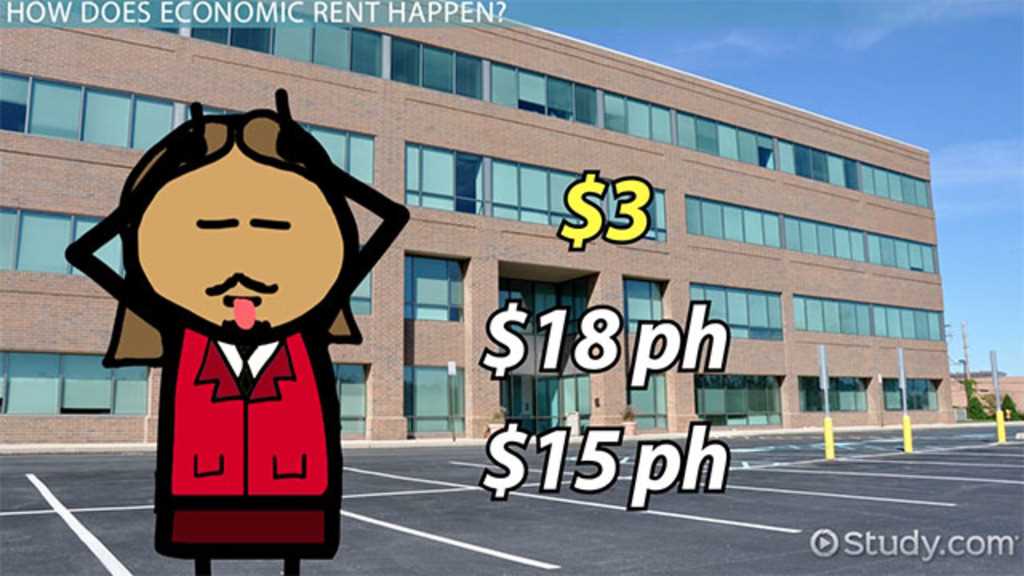What is Economic Rent?
Economic rent is a concept in economics that refers to the income earned by a resource or factor of production that exceeds the minimum amount necessary to keep it in its current use. It is the difference between what a resource earns and what it could earn in its next best alternative use.
Economic rent is often associated with factors of production such as land, natural resources, and intellectual property. These resources have a limited supply and can generate significant income due to their scarcity.
Factors that contribute to economic rent
There are several factors that contribute to the emergence of economic rent:
- Scarcity: Economic rent arises when a resource is scarce and in high demand. The limited supply of the resource allows its owners to charge a premium for its use.
- Monopoly power: Economic rent can also be generated through monopoly power. When a company has exclusive control over a resource or market, it can set prices higher than the competitive level, resulting in economic rent.
- Unique skills or talents: Individuals with unique skills or talents can earn economic rent by charging higher fees for their services. This is often seen in professions such as entertainment, sports, and specialized consulting.
Implications of economic rent
Economic rent has several implications for the economy:
- Income inequality: Economic rent can contribute to income inequality as those who own or control scarce resources can earn significant income, while others may struggle to make ends meet.
- Efficiency: The presence of economic rent can lead to inefficiencies in the economy. When resources are allocated based on the ability to pay rather than their productive use, it can result in suboptimal outcomes.
- Incentives: Economic rent can provide incentives for individuals and companies to invest in the acquisition and development of scarce resources. The potential for high returns encourages investment and innovation.
Types of Economic Rent
Economic rent can be categorized into several types, each representing a different situation or scenario. These types include:
1. Scarcity Rent
Scarcity rent occurs when a resource is limited in supply and high in demand. This creates a situation where individuals or businesses are willing to pay a premium price for access to the resource. For example, prime real estate in a highly desirable location may command a higher rent due to its limited availability.
2. Monopoly Rent
Monopoly rent arises when a single entity has exclusive control over a resource or market. This allows the entity to set prices higher than the competitive market rate, resulting in excess profits. Monopoly rent can be seen in industries where there is limited competition, such as utilities or patented pharmaceuticals.
3. Transferable Rent

Transferable rent refers to the ability to transfer the rights to a resource or asset to another party in exchange for a payment. This can occur in situations where the resource has value beyond its direct use. For example, a farmer may lease their land to another farmer in exchange for rent.
4. Differential Rent
Differential rent occurs when the productivity or quality of a resource varies across different locations or uses. This leads to differences in rent prices based on the specific characteristics of the resource. For instance, agricultural land with fertile soil may command higher rent prices compared to land with poorer soil quality.
5. Quasi-Rent
Quasi-rent is a temporary form of economic rent that arises due to short-term changes in supply and demand. It is often associated with industries where the supply of resources or goods cannot be easily adjusted in the short term. For example, if there is a sudden increase in demand for a specific product, the price may temporarily rise, resulting in quasi-rent for producers.
Examples of Economic Rent
Economic rent can be observed in various industries and sectors of the economy. Here are some examples:
| Industry | Example of Economic Rent |
|---|---|
| Agriculture | Farmland located in a prime location with fertile soil and access to water sources can command a higher rent compared to less desirable farmland. |
| Real Estate | Properties located in popular and high-demand areas, such as city centers or tourist destinations, often have higher rents due to their location advantages. |
| Intellectual Property | Owners of patents, copyrights, and trademarks can earn economic rent by licensing their intellectual property to others. |
| Natural Resources | Companies that own oil fields, mineral deposits, or forests can earn economic rent by extracting and selling these resources. |
| Entertainment Industry | Famous actors, musicians, and athletes often earn economic rent due to their unique talents and high demand for their services. |
These examples highlight how economic rent can arise from various factors, such as location, scarcity, intellectual property rights, and unique talents. It is important to note that economic rent can sometimes lead to income inequality, as those who possess the rent-generating factors can earn significant profits without necessarily contributing proportionally to the overall production or value creation.
Importance of Economic Rent
Economic rent also helps economists analyze market inefficiencies and barriers to entry. When certain individuals or companies have a monopoly or exclusive access to a resource, they can charge higher prices and earn economic rent. This can lead to market distortions and reduce overall economic welfare.

Emily Bibb simplifies finance through bestselling books and articles, bridging complex concepts for everyday understanding. Engaging audiences via social media, she shares insights for financial success. Active in seminars and philanthropy, Bibb aims to create a more financially informed society, driven by her passion for empowering others.
